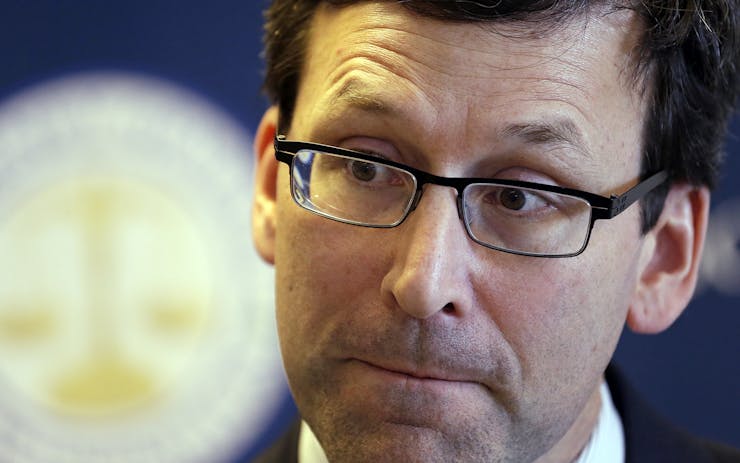Washington state Attorney General Bob Ferguson hasn’t been shy about the fact he’s willing to defend the state’s legal cannabis system from federal interference. He doubled down on that pledge this week, confirming in an interview that his office is prepared to take legal action if the Justice Department goes after Washington’s state-legal industry.
“We are—and have been, really, for a long time—prepared if there needs to be a legal fight on the future of marijuana legalization in Washington state,” Ferguson said Wednesday in an interview with the editorial board for The Columbian newspaper. “We hope it doesn’t come to that, but we’ve always felt that way.”
When asked what could trigger such action, Ferguson said he was keeping an eye out for federal efforts to shutter a state-compliant business or seize its assets:
Hypothetically speaking, right, there could be a business that’s licensed in Washington state selling marijuana that’s following state law. Let’s assume they’re following state law to a T—that’s important—and the feds go in and try to shut that business down, they seize the marijuana or the proceeds. If in my view, we’ve got a legitimate business, playing by our rules here in Washington state and the federal government comes in to try to shut that down, we’d be interested in that. Or any step that’s taken to adversely impact the system as a state that we have going forward, that would be something we’d play close attention to.
He stressed that his office would evaluate potential actions on a case-by-case basis. “I don’t want to absolutely commit to any course of action—each situation can be factually different—but in general if there were a threat to our industry, that would have our attention,” he said.
Ferguson added he and Washington Gov. Jay Inslee have made multiple requests to meet personally with US Attorney General Jeff Sessions to discuss cannabis policy since he took office last year. “He’s not granted any of those,” Ferguson said. “In contrast, [former] US Attorney General Eric Holder [and I] had a meeting within two weeks of when I took office” to talk cannabis policy.
On Jan. 4 of this year, Sessions removed a Holder-era Justice Department guideline, known as the Cole memo, that set a policy of noninterference in states that legalized cannabis. “It gave what I thought were helpful guidelines, priorities that the federal government had for Washington and Colorado as we set up our systems: Make sure kids don’t get their hands on marijuana, make sure marijuana’s not getting beyond state borders,” Ferguson said, adding: “Hey, we agree with those!”
But Sessions seems intent on making a case against legal cannabis. In a letter to Ferguson and the governor, Sessions attacked the state’s system, citing a 2016 law enforcement report that he said “raises serious issues about the efficiency of marijuana ‘regulatory structures’ in your state.”
In the Columbian interview, Ferguson called that letter an embarrassment, saying it was “riddled with factual mistakes”:
He sent a letter to myself and the governor a few months ago, a long letter but which, as you know, was riddled with factual mistakes. There’s no way to sugar coat that, right? He relied on a report from a couple of years ago. I think the first thing he accused us of was not having a system that had combined our medical and recreational marijuana systems together, relying on that old report—but, of course, since that report came out, we had!
To me that’s embarrassing that the US attorney general, on an issue of that importance, is writing a letter to a governor and attorney general of another state and he’s just got his facts wrong. That’s a problem, I think. I think this is a problem in trying to move forward on these issues.
There’s evidence Ferguson’s office is already preparing a case in response to Sessions’ rollback of the Cole memo. Last week, the state AG’s office reached out to licensed members of the state’s cannabis industry in an effort to identify businesses that had been negatively impacted by the move.
“Has a bank stopped working with them, for example, no longer taking the proceeds from their sales?” Ferguson explained in the interview. “We’re interested if there’s [been] any adverse impacts from that decision on any businesses out there, and if there have, we’re interested in hearing from them.”
Shop highly rated dispensaries near you
Showing you dispensaries nearAsked if any affected businesses had reached out, Ferguson replied that he hadn’t received a “complete account” from his office.
Ferguson didn’t give much detail on legal strategies his office might employ in any potential lawsuits, saying only that the fight could center on “whether federal law preempts state law when it comes to marijuana.”
“There could be a legal fight along those lines,” he said. “We think we have good arguments.”





